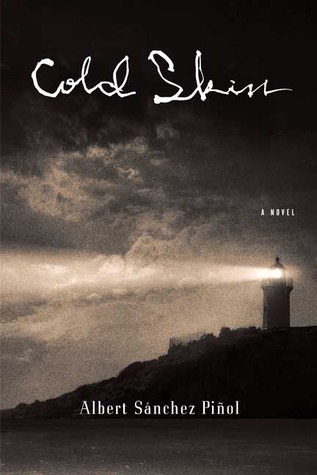I’ve always been intensely fascinated by Antarctica: the huge white continent at the bottom of the globe which is the coldest, windiest and driest place on Earth. It inspires a sort of horror vacui, a fear of all-encompassing isolation and whiteness that might find its place in a Herman Melville novel. My debut novel, All The White Spaces, uses the eerie nature of the continent as the perfect backdrop for a story about loss, trauma, and personal identity. While the expedition narratives of the Heroic Age (Scott, Shackleton et al) contained plenty of reflections on the fear, awe and beauty of the great white spaces, I also sought out modern, and sometimes unexpected, books which offered fresh perspectives on what it feels like to be human in an inhuman place.
All The White Spaces is a story about who you are when circumstances and the elements strip you down to your essence and allow you to rebuild. My protagonist, Jonathan Morgan, was raised as a girl, but longs to take his place in the world of men, and prove to himself (and everyone else) that he can live up to the reputation and legacy of his dead war-hero brothers. Reputation and expectations—both societal and personal—stalk the pages of these books, and offer the chance for us to see the world through very different sets of eyes: sometimes dark and troubled, other times joyful and inspiring: but always, ultimately, transformative.
Lean Fall Stand by Jon McGregor
Lean Fall Stand opens with a detailed, stark description of three men—Luke, Doc, and Thomas—caught in a sudden, overwhelming, and very scary storm which cuts them off from their remote observation station on Antarctica’s windy and exposed peninsula. Exploring the fine line between heroism and hubris, the rest of the novel unpicks the implications of a single event spun out into tragedy, seen through Doc’s post-stroke rehabilitation. McGregor’s novel is a deeply intimate portrayal of courage and endurance, the loss of senses and the self.
The White Darkness by Geraldine McCaughrean
Knowing what’s real and what’s an illusion—or even self-deception—is taken to another level in this stunning YA novel about a deaf teenager who’s taken to the South Pole by her troubled and domineering “uncle” who’s an obsessive believer in theories of a Hollow Earth. Sym is accompanied by an invisible companion: Captain Titus Oates, famed for his heroic “I may be some time” self-sacrifice in a bid to save the lives of his companions on Scott’s doomed 1912 expedition to the Pole. He’s unflappable, endearing and obtuse by turns, and this imaginary figure allows Sym to interrogate the boundaries of her own reality and free herself from the influences of fantasy and fantasists. A brilliant, inspiring read.
Victim Of The Aurora by Thomas Keneally
Taking us back to that Heroic Age known by Oates, Victim Of The Aurora (by famed Schindler’s Ark author Keneally) immerses the reader in the overwinter huts of an Edwardian Antarctic expedition: full of stiff upper lips, the expectations of class, and a rigid understanding of masculinity. The narrative point of view is skillfully chosen and allows the novel to show all the certainties of “the innocent years before the First World War” challenged and undermined by the Antarctic void and the spectre of a murderer in their midst. A deeply frightening book at times, this explores all the subtleties found in the heart of man.

Antarctica On A Plate by Alexa Thompson
An entirely different register is found in Antarctica On A Plate: joyful, exuberant and full of mischief and adventure. Alexa Thompson was a web designer working in Sydney, “disaffected by the hollowness of [her] fabulous city lifestyle”, who leapt on the unique opportunity to pack it all in for a job as a cook at a blue-ice runway station in Antarctica’s Dronning Maud Land. She’s a fabulous companion and her account is full of friendships forged, love, camaraderie, and the very real day-to-day challenges of feeding a crowd from a tent on the ice. She leaves us with an image of one of the bamboo poles marking the station’s runway (once it is packed up and evacuated), “bending with the winds that sweep across the desert”. So, too, does Thompson bend and adapt to her unique way of life over the course of this book.

Cold Skin by Albert Sánchez Piñol
From the familiar to the extremely alien: Piñol’s dark and compulsive novel is about the most shocking and deranged circumstances imaginable, but manages to shine a light on its narrator’s most intimate heart. From the book’s opening lines: “We are never very far from those we hate. For this very reason, we shall never be truly close to those we love,” the story sets out to show us the familiar in the unfamiliar.
The narrator is to be the sole occupant of a weather station on an uninhabited island in the Antarctic Circle just after the First World War. But when he arrives, he finds signs of violence—predation by inhuman creatures—and a sinister and callous lighthouse-keeper, who emerges as a general in a nightly war against the “toads.” Cold Skin is a starkly written and thought-provoking book about the boundaries of humanity and our own impulses towards territorialism and violence.
The Dark by Emma Haughton
Another Antarctic thriller of a very different kind, Haughton takes us to a modern-day research station and the struggles of its (somewhat coldly welcomed) substitute doctor. As the Polar winter and night descends, Kate has to deal with her own demons, including addiction, while descending into a paranoid and disorientating search for who might be the “killer” on base—if there even is one. Madness seems to beckon from every corner of this tight, claustrophobic book.
Endurance by Alfred Lansing
A non-fiction book that reads like the very best possible thriller, Endurance—although dated—is a compulsive page-turner which recounts the true story of Shackleton’s failed Antarctic expedition of 1914. All of human life is here: disputes over the “doggies,” cheerfulness in the face of certain death, moments of heartbreaking loss, and hair-cutting competitions. The personalities of the men shine out clear as a lantern, meaning that the scope of the disaster and awe-inspiring rescue can be even better appreciated.

Where’d You Go, Bernadette by Maria Semple
Bernadette Fox is an eccentric woman with agoraphobia. Once an acclaimed architect, her attempts to come to terms with this loss of personal identity and the (sometimes petty) concerns of motherhood and community in a suburb of Seattle make for a funny, moving epistolary read. On what was to be a family cruise to Antarctica, she disappears entirely. Her daughter, Bee, is left unraveling the strands which make up her mother’s story, searching for her through the Drake Passage and ultimately onto the Antarctic Peninsula itself.
Semple’s book is razor-sharp and witty, but deals with the trauma of genius and shattered dreams, asking us what we are when our “purpose” in life is stolen. This, ultimately, is the theme which can be found over and over again in these books, as in so many books on Antarctica: when everything is stripped away, what is the core self? Apsley Cherry-Garrard, writing about his experiences on the Terra Nova expedition to the South Pole, puts it memorably:
“In civilisation men are taken at their own valuation because there are so many ways of concealment, and there is so little time, perhaps even so little understanding. Not so down South.”
Antarctica is both a mirror to our innermost selves and a blank page on which we can construct our own stories and our own identities: the proverbial “clean slate.”
The post 8 Stories Set in Antarctica About Identity and Transformation appeared first on Electric Literature.
Source : 8 Stories Set in Antarctica About Identity and Transformation













